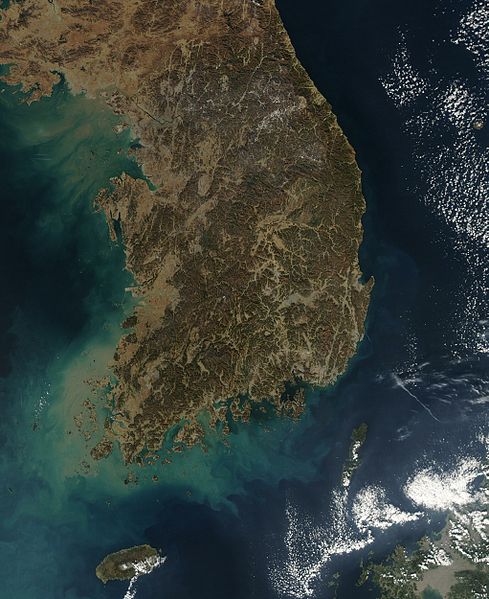Coronavirus Patients in South Korea Are Testing Positive After Recovery

South Korea from space
It has been found in South Korea that patients who have recovered from COVID-19 are testing positive again after having been released from treatment. After the country has successfully flattened their curve, this problem has been raising new questions and concerns among health authorities and scientists.
163 patients who tested positive again after having made a full recovery were identified by Korean health authorities. That number was more than double from the previous week, having had 74 cases reported on April 9. Those patients, which count for slightly over 2% of the country’s 7,829 recovered patients, have been moved back into isolation.
Data suggest the age and regional distribution of relapse cases are commonly in line with that of the total infections, according to the Korea Centers for Disease Control and Prevention. Many concurrent tests are being done in South Korea to find further results. The World Health Organization stated last week that it is looking into the issue as well.
It has been found by KCDC officials that the most likely possibility of recurrence is a reactivation of remaining viruses in patients’ systems. This could happen if a patient had not developed sufficient immunity against the virus, or if after a patient recovers and their immune system is still weak, the previously undetectable level of virus concentration could rebound. The coronavirus may even be capable of staying dormant before reactivating.
There could be a possibility that COVID-19 tests are picking up dead virus particles that are no longer infectious or transmissible. On Friday, April 17, 2020, KCDC director-general Jeong Eun-kyeong said that viruses collected from six relapse cases could not be cultivated in isolation, alluding that the cells are either dead or too small in number.
As of today, at least 61 recovered patients developed symptoms again, however, they are mild symptoms. No secondary transmission by relapsed cases has been reported, according to Jeong. Jeong also said that relapse cases are detected an average of 13.5 days after recovery. In an unexpected twist, the longest reported interval is 35 days.
KCDC has brought up the fact that there are errors in testing and/or sample collecting, which could be potential causes. Due to these uncertainties, authorities are advising recovered patients to stay home additionally for two weeks and for them to monitor their symptoms (if any appear).